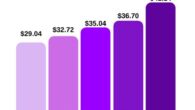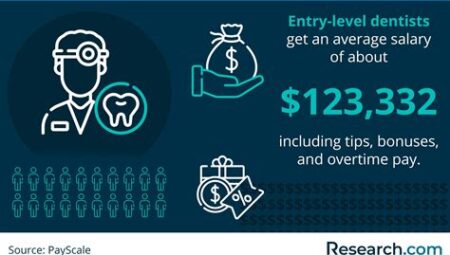Are you passionate about physical education and considering a career as a physical education teacher? As you embark on this journey, it’s important to consider the various factors that can affect your potential salary in this rewarding profession. In this blog post, we will explore the importance of physical education teachers, the educational requirements needed to pursue this career, and how experience correlates with salary potential. We will also delve into negotiating strategies, benefits packages, and career growth opportunities for physical education teachers. Additionally, we’ll compare salaries in different education settings, discuss incentives and bonuses, and examine salary trends and projections in the field of physical education teaching. By the end of this post, you will have a better understanding of what to expect in terms of salary and career prospects as a physical education teacher. Stay tuned for valuable insights and guidance on combining the joy of teaching with a competitive salary in the field of physical education.
Table of Contents
Importance of Physical Education Teachers
Physical education teachers play a crucial role in the overall development of students. They are responsible for not only teaching physical skills and techniques, but also for promoting a healthy and active lifestyle. By providing students with the knowledge and skills to engage in various physical activities, physical education teachers help improve their students’ physical and mental well-being.
In addition to this, physical education teachers also teach important life skills such as teamwork, leadership, and sportsmanship. These skills are invaluable and can greatly impact a student’s personal and professional life beyond the school environment.
Furthermore, physical education is an essential part of the curriculum as it contributes to the holistic development of students. It not only helps in fostering a healthy and active lifestyle but also aids in the development of cognitive skills and emotional intelligence. Physical education teachers are instrumental in imparting these valuable lessons to their students.
Overall, the role of physical education teachers in schools is paramount. They not only contribute to the physical and mental well-being of students, but also play a significant part in shaping their overall development and preparing them for a healthy and successful future.
Factors Affecting Physical Education Teacher Salaries
When it comes to the salaries of physical education teachers, there are several factors that can influence how much they earn. One of the most significant factors is the level of education and experience that a teacher possesses. Those with advanced degrees and years of experience typically command higher salaries.
Certification is another important factor. Teachers who are certified in specialties such as adaptive physical education or health education may be eligible for higher salaries due to their specialized skills and knowledge.
Geographic location can also play a role in determining a physical education teacher’s salary. In areas with a higher cost of living or a higher demand for teachers, salaries may be higher to attract and retain qualified educators.
Lastly, the type of institution where a physical education teacher works can impact their salary. Teachers in public schools, private schools, or universities may experience differences in pay scales based on the structure and funding of the institution.
Educational Requirements for Physical Education Teachers
Physical education teachers play a crucial role in promoting wellness and physical activity in schools. To become a physical education teacher, individuals must meet specific educational requirements to ensure they are equipped with the necessary knowledge and skills to effectively teach and promote physical fitness.
First and foremost, aspiring physical education teachers must complete a bachelor’s degree program in physical education or a related field. This program typically includes coursework in kinesiology, exercise science, anatomy, physiology, and pedagogy. In addition to classroom instruction, students are also required to complete a period of supervised teaching experience in a school setting to gain practical experience.
Upon completion of a bachelor’s degree program, individuals may also need to obtain a state-issued teaching license or certification to work in public schools. This process usually involves passing a series of exams to demonstrate proficiency in the subject matter and teaching methods. Some states also require teachers to complete continuing education courses to maintain their certification.
In some cases, physical education teachers may choose to further their education by pursuing a master’s degree in physical education or a related field. A master’s degree can provide educators with advanced knowledge and skills, as well as potential opportunities for career advancement and higher salaries.
Experience and Salaries: How They Correlate
When it comes to the field of physical education, experience plays a significant role in determining a teacher’s salary. Experience not only brings wisdom and knowledge, but it also has a direct impact on the earning potential of physical education teachers. Those who have been in the field for several years tend to have higher salaries compared to those who are just starting out.
Additionally, the correlation between experience and salaries is further strengthened by the fact that seasoned teachers often take on leadership roles within their schools. This not only adds to their hands-on experience but also increases their value to the institution, leading to higher remuneration.
On the other hand, it’s also important to note that the correlation between experience and salaries may vary based on the educational setting. Teachers working in private schools or elite institutions may command higher salaries with fewer years of experience, while those in public schools may need more years to reach the same earning level.
In conclusion, the correlation between experience and salaries in the field of physical education is clear. While experience can result in higher salaries, the specific impact can vary based on the type of educational institution where the teacher is employed. Nonetheless, it’s essential for physical education teachers to continue gaining experience and honing their skills to secure a higher income in their profession.
Negotiating Salaries in Physical Education Teaching
When it comes to working as a physical education teacher, negotiating salaries can be a crucial aspect of the job. It’s important for teachers to feel valued and compensated fairly for their hard work, so understanding how to negotiate salaries is essential. As with any profession, there are several factors that can impact the negotiation process.
One factor that can affect salary negotiation is the level of experience and education that a physical education teacher brings to the table. Those with advanced degrees or extensive experience may have more leverage when it comes to negotiating their salaries. Employers may be willing to offer higher salaries to those who have a proven track record of success in the field.
Location is another important consideration when negotiating salaries in physical education teaching. Teachers in more affluent areas or high-demand locations may be able to command higher salaries due to the demand for qualified professionals. Conversely, teachers in areas with a lower cost of living and less demand for educators may find that their negotiating power is diminished.
Furthermore, it’s crucial for physical education teachers to understand the industry standards and average salaries within their specific geographic region. This knowledge can provide them with the data and confidence they need to effectively negotiate for fair compensation. Additionally, understanding the benefits package offered by the employer can also play a significant role in the negotiation process, as these additional perks can greatly impact the overall value of the compensation package.
Benefits Package for Physical Education Teachers
Physical education teachers play a crucial role in shaping the physical and mental health of students. In addition to the satisfaction of making a positive impact on young lives, they can also enjoy several benefits as part of their employment package.
One of the most important benefits for physical education teachers is health insurance coverage. This can include medical, dental, and vision insurance, which can provide financial assistance in case of health related issues. Having access to good healthcare coverage can give teachers peace of mind and help them focus on their job without worrying about medical expenses.
Another common benefit is retirement plans such as 401(k) or pension programs. These plans can help physical education teachers save for their future and provide financial security after they retire from teaching. Some schools may also offer tuition reimbursement, allowing teachers to further their education and professional development without incurring significant financial burden.
Furthermore, many schools provide additional perks such as paid leave, flexible work hours, professional development opportunities, and access to wellness programs. These benefits can contribute to a positive work-life balance and overall job satisfaction for physical education teachers.
Career Growth Opportunities for Physical Education Teachers
Physical education teachers have a variety of career growth opportunities available to them as they gain experience and expertise in their field. One such opportunity is the chance to take on leadership roles within their school or district, such as becoming a department head or curriculum coordinator. These positions not only come with increased responsibility, but also the chance to mentor and guide other teachers in the field.
Additionally, physical education teachers can choose to pursue advanced degrees or certifications in specialized areas, such as adaptive physical education or sports psychology. This can open up doors to higher-level teaching positions, as well as opportunities to work in non-traditional settings such as hospitals or rehabilitation centers.
Another growth opportunity for physical education teachers is the chance to become involved in research and advocacy for the field. This could involve conducting studies on the benefits of physical education, or working with lawmakers to develop and implement policies that support quality physical education in schools.
Lastly, as physical education teachers gain experience and build their professional network, they may have the opportunity to present at conferences, write articles, or serve on committees related to physical education. This can not only raise their professional profile, but also serve as a platform for sharing their expertise with a broader audience.
Comparing Salaries in Various Education Settings
When it comes to the field of physical education teaching, salaries can vary greatly depending on the education setting in which a teacher is employed. Comparing salaries across various education settings can provide valuable insight into the earning potential for physical education teachers.
In public schools, physical education teachers may earn salaries that are determined by state or local government pay scales. These salaries may be influenced by factors such as the teacher’s level of education, years of experience, and additional certifications or endorsements. Salaries in public schools may also be affected by budget constraints and funding allocations within the school district.
On the other hand, physical education teachers who work in private schools may have the potential to earn higher salaries, as these institutions often have more autonomy in setting their own pay scales. Additionally, private schools may be more likely to offer attractive benefits packages and incentives to attract and retain qualified physical education teachers.
Physical education teachers who work in colleges and universities may have the opportunity to earn the highest salaries in the field, especially if they hold advanced degrees and have significant experience. Salaries in higher education settings can also be influenced by the teacher’s research and publication contributions, as well as their involvement in professional organizations and conferences.
Incentives and Bonuses for Physical Education Teachers
Physical education teachers play a crucial role in promoting a healthy and active lifestyle among students. As such, their dedication and hard work should be recognized and rewarded. In addition to their base salaries, incentives and bonuses can serve as powerful motivators for physical education teachers to continue excelling in their roles.
One common form of incentive for physical education teachers is performance-based bonuses. These bonuses are awarded to teachers who consistently demonstrate exceptional teaching skills, student engagement, and results in improving students’ physical fitness levels. By rewarding outstanding performance, schools can encourage continuous improvement and innovation among their physical education staff.
Another common incentive for physical education teachers is professional development opportunities. Schools may offer monetary bonuses to teachers who complete additional certifications, attend workshops, or pursue higher education degrees related to physical education. By investing in their teachers’ professional growth, schools can ultimately enhance the quality of physical education programs offered to students.
Furthermore, incentives and bonuses can also take the form of non-monetary rewards such as gym memberships, fitness equipment, or wellness retreats. These types of benefits can contribute to the overall well-being of physical education teachers, ensuring they remain physically and mentally fit to effectively carry out their job responsibilities.
Salary Trends and Projections in Physical Education Teaching
Physical education teachers play a vital role in shaping the health and well-being of young students. As in any profession, it’s important for these individuals to understand the current salary trends and projections in their field. By being aware of these factors, educators can make informed decisions about their career paths and financial futures.
One of the key trends in physical education teaching salaries is the increasing demand for qualified professionals. With an emphasis on promoting physical activity and healthy lifestyles, schools across the country are recognizing the value of physical education teachers and are willing to invest in competitive compensation packages to attract and retain top talent in the field.
Another important factor affecting salaries in physical education teaching is the geographic location of the school or district. Urban areas and regions with higher costs of living often offer higher salaries to educators, reflective of the increased demand and competition for qualified teachers in these areas.
Looking ahead, projections for physical education teaching salaries are positive, with the Bureau of Labor Statistics forecasting a steady increase in demand for educators in the field. This is driven by a growing awareness of the importance of physical fitness and the role of schools in promoting healthy habits among students. As a result, physical education teachers can expect to see continued growth in salary opportunities in the coming years.






